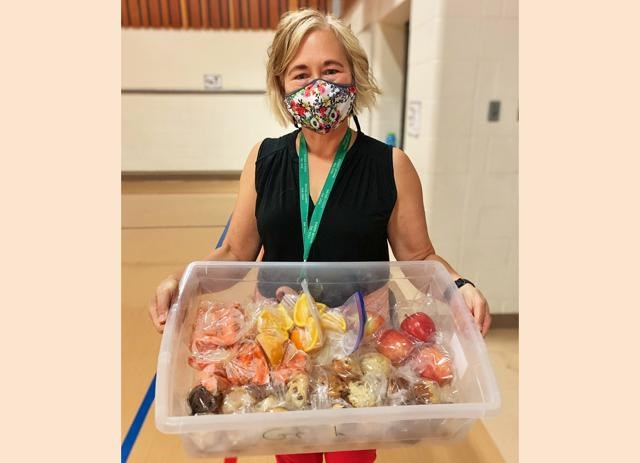Souris School has been providing a nutrition program for their students and families this year, but are facing extra new challenges due to the COVID-19 pandemic.
The challenges are not only in how the program can be delivered, but in getting donations and support to help the program continue on to help students.
The school is reaching out to the community for assistance, and as program coordinator Shannon Seitz observed, “Our tight budget has recently become tighter with COVID-19, as food is now served in classrooms, meaning more students than ever before are accessing the nutrition program.”
One major change for the program is they had previously had a list of 22 volunteers who would come in to help run the program, but now volunteers are not able to come into the school. In addition, rather than having the children come in the morning to sit and eat together in the gym, the teachers take a bin of breakfast food up to the class, and hand the food items out, which have all been prepackaged.
The program has a needs list of items for their program, including the following: peanut butter, jam, chocolate chips, rolled oats, flour, cooking oil, butter, sugar (white and brown), honey, baking soda, eggs, baking powder, along with dried fruit (raisins, Craisins, strawberries, blueberries), frozen fruit (mixed berry, blueberry, strawberry), granola bars (healthy options preferred, nuts allowed, not chocolate dipped) and fresh fruit and vegetables like apples, oranges, bananas, pears, cucumbers, celery, carrots and peppers.
Seitz noted there are a variety of ways where a donor can partner with them, such as with gift cards, cash donations, or a group or business hosting a food drive. If someone wants to put on a food drive, they should contact Seitz to coordinate things, as the donated food items needs to sit for 72 hours before it can be brought into the school.
One fundraising suggestion is to host a breakfast where the fee is a donation of food or money to the Souris nutrition program.
The Breakfast Club has operated at the school since 2012, and that was expanded to the supplemental lunch and snack program.
With figures provided by public health nutritionists in Saskatchewan, Seitz said the following costs are a good guideline for costs of the program. A breakfast costs $1.19 per student each day; a lunch is $1.80 per student each day, and a snack is $1.04 per cent each day.
In 2020, Souris served an average of 115 students per day for 180 days a year. Using the above figures, the nutrition program costs about $24,480 for one year.
With better nutrition, students are better able to reach their potential, they have improved energy levels, and have enhanced problem-solving skills, creativity, concentration and behaviour.



